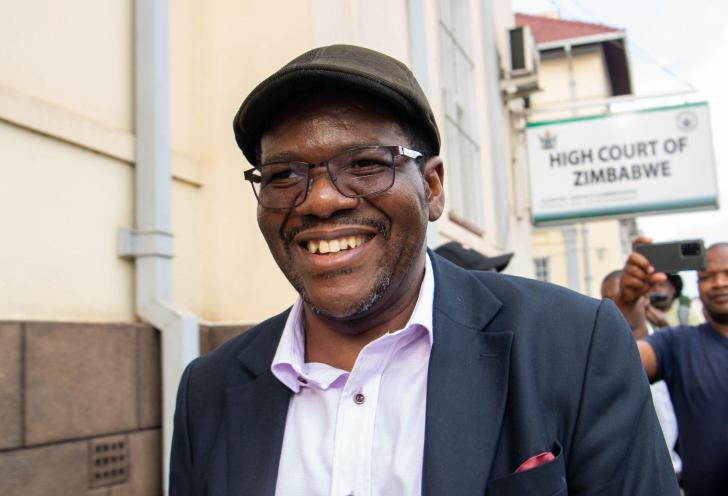News / National
Mnangagwa's CCC coalition gambit mirrors Smith's failed Muzorewa pact
17 May 2025 at 13:05hrs |
0 Views

Zimbabwe's ruling Zanu PF party appears to be revisiting the script of colonial Rhodesia's failed 1978 internal settlement as it courts Sengezo Tshabangu's faction of the Citizens Coalition for Change (CCC), in a political manoeuvre reminiscent of Ian Smith's ill-fated alliance with moderate black leaders.
The 1978 agreement between Smith and African leaders like Bishop Abel Muzorewa, Chief Jeremiah Chirau, and Ndabaningi Sithole was a desperate attempt to placate a restless black population and the international community, without addressing core grievances such as land redistribution and universal suffrage. Muzorewa's brief stint as Prime Minister did little to quell the liberation struggle, as major nationalist forces - Robert Mugabe's ZANU and Joshua Nkomo's ZAPU - were excluded from the deal.
Despite Smith's hopes that integrating moderate Africans into government would end sanctions and military hostilities, his internal settlement failed dismally. The war raged on, sanctions remained, and regional leaders like Kenneth Kaunda, Samora Machel, and Julius Nyerere insisted that only genuine negotiations including Mugabe and Nkomo would resolve the conflict. They were proven right when the Lancaster House Conference in 1979 ultimately ushered in Zimbabwe's independence the following year.
Now, 45 years after Independence, parallels are being drawn between Smith's doomed strategy and the current overtures by President Emmerson Mnangagwa's Zanu PF to engage Tshabangu's CCC faction - a group many view as politically neutered proxies.
Tshabangu, who controversially declared himself CCC's interim secretary-general after seizing control of the opposition following the disputed 2023 elections, is reported to have approached Zanu PF with a proposal for a coalition government that would postpone the next general elections by two years.
The Standard newspaper revealed this week that Tshabangu's proposal has been met with enthusiasm by the ruling party. Zanu PF spokesperson Chris Mutsvangwa praised the idea as "very noble," adding that it was important to "build rapport and understanding… so that we incorporate the ideas of the Zimbabwe we want."
Critics, however, argue that this is a thinly veiled strategy to entrench Zanu PF's rule and lay the groundwork for extending Mnangagwa's presidency beyond 2028, when his second term is constitutionally due to end.
Political analysts warn that the move risks further alienating the electorate and undermining the legitimacy of governance structures in Zimbabwe.
"Tshabangu's alignment with Zanu PF echoes the hollow compromise between Smith and Muzorewa. It was a ruse then, and it's a ruse now," one observer noted. "It failed to stop the war in 1978, and this political marriage of convenience will fail to solve Zimbabwe's current crisis."
Many Zimbabweans see the latest developments as a betrayal of democratic principles, with concerns mounting that the ruling elite is more focused on political survival than on meaningful reforms and national healing.
As Mnangagwa's camp floats constitutional amendments and coalition talks with a compromised opposition, history warns that such strategies - designed to neutralise rather than accommodate genuine opposition voices - are not only unsustainable but potentially combustible.
The ghosts of Muzorewa's short-lived government loom large. And just like Smith, Mnangagwa may find that co-opting pliable figures will not resolve the deep-rooted political and economic challenges facing Zimbabwe today.
The 1978 agreement between Smith and African leaders like Bishop Abel Muzorewa, Chief Jeremiah Chirau, and Ndabaningi Sithole was a desperate attempt to placate a restless black population and the international community, without addressing core grievances such as land redistribution and universal suffrage. Muzorewa's brief stint as Prime Minister did little to quell the liberation struggle, as major nationalist forces - Robert Mugabe's ZANU and Joshua Nkomo's ZAPU - were excluded from the deal.
Despite Smith's hopes that integrating moderate Africans into government would end sanctions and military hostilities, his internal settlement failed dismally. The war raged on, sanctions remained, and regional leaders like Kenneth Kaunda, Samora Machel, and Julius Nyerere insisted that only genuine negotiations including Mugabe and Nkomo would resolve the conflict. They were proven right when the Lancaster House Conference in 1979 ultimately ushered in Zimbabwe's independence the following year.
Now, 45 years after Independence, parallels are being drawn between Smith's doomed strategy and the current overtures by President Emmerson Mnangagwa's Zanu PF to engage Tshabangu's CCC faction - a group many view as politically neutered proxies.
Tshabangu, who controversially declared himself CCC's interim secretary-general after seizing control of the opposition following the disputed 2023 elections, is reported to have approached Zanu PF with a proposal for a coalition government that would postpone the next general elections by two years.
The Standard newspaper revealed this week that Tshabangu's proposal has been met with enthusiasm by the ruling party. Zanu PF spokesperson Chris Mutsvangwa praised the idea as "very noble," adding that it was important to "build rapport and understanding… so that we incorporate the ideas of the Zimbabwe we want."
Political analysts warn that the move risks further alienating the electorate and undermining the legitimacy of governance structures in Zimbabwe.
"Tshabangu's alignment with Zanu PF echoes the hollow compromise between Smith and Muzorewa. It was a ruse then, and it's a ruse now," one observer noted. "It failed to stop the war in 1978, and this political marriage of convenience will fail to solve Zimbabwe's current crisis."
Many Zimbabweans see the latest developments as a betrayal of democratic principles, with concerns mounting that the ruling elite is more focused on political survival than on meaningful reforms and national healing.
As Mnangagwa's camp floats constitutional amendments and coalition talks with a compromised opposition, history warns that such strategies - designed to neutralise rather than accommodate genuine opposition voices - are not only unsustainable but potentially combustible.
The ghosts of Muzorewa's short-lived government loom large. And just like Smith, Mnangagwa may find that co-opting pliable figures will not resolve the deep-rooted political and economic challenges facing Zimbabwe today.
Source - the independent
Join the discussion
Loading comments…
































